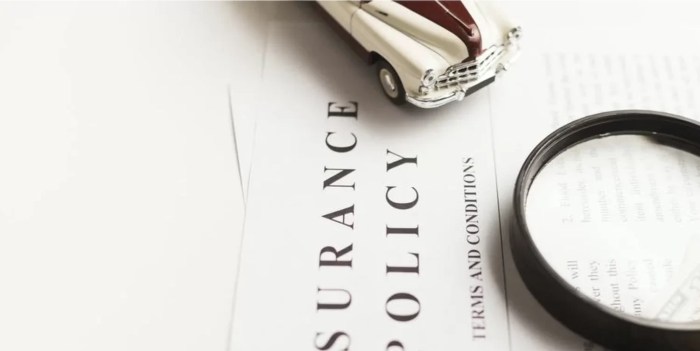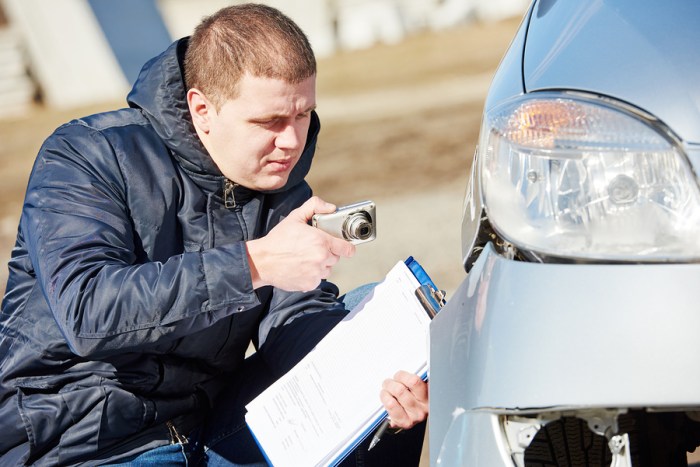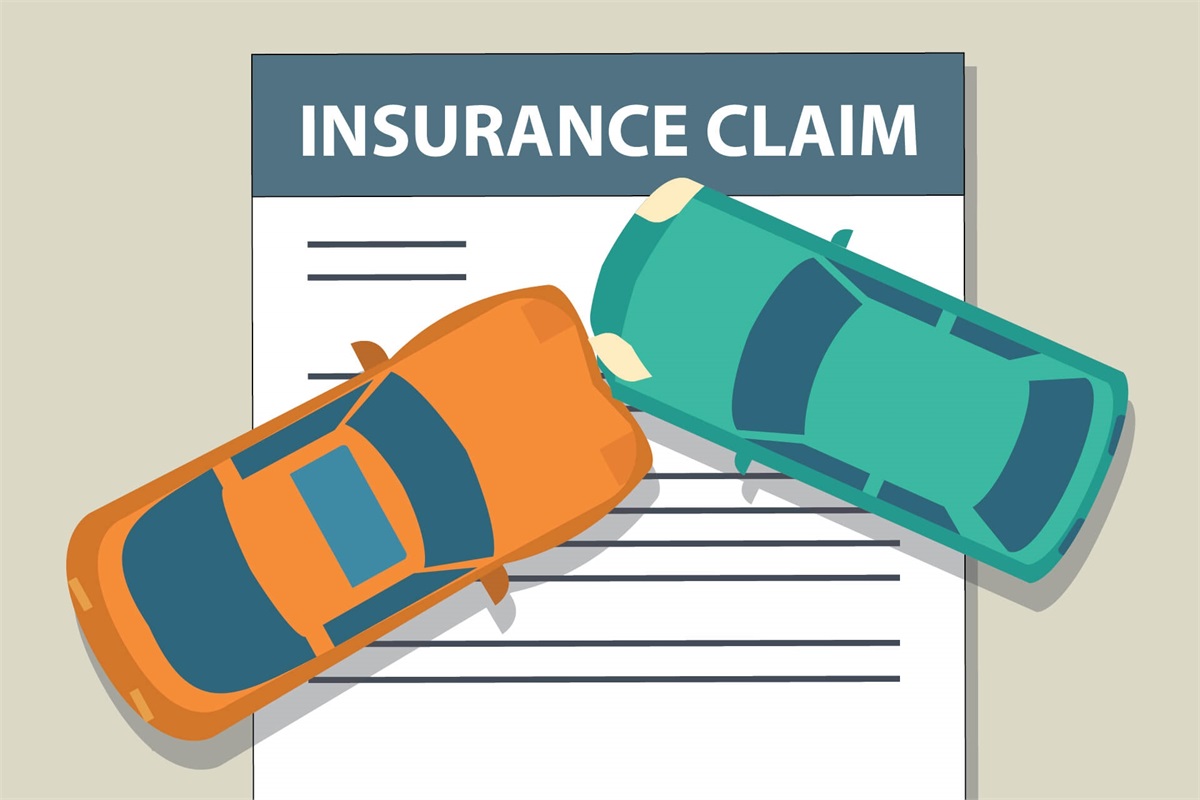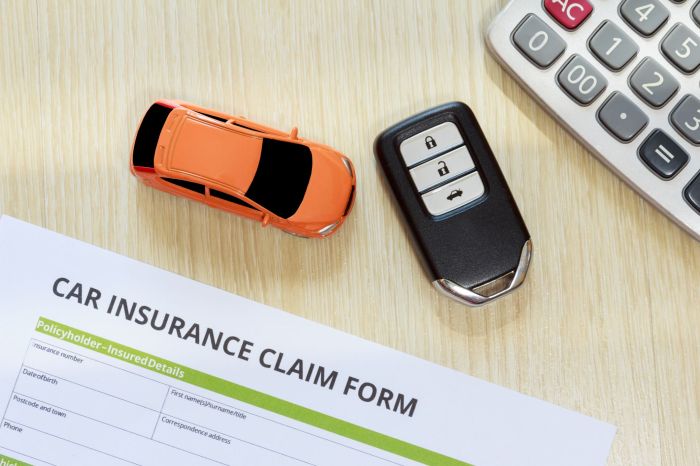How to file a car insurance claim in California? It’s a question that pops up when you least expect it, right? Whether you’re in a fender bender or a more serious accident, knowing how to navigate the insurance process can be a huge relief.
This guide is your roadmap to understanding California’s car insurance system, from reporting the accident to filing a claim and even dealing with a potential denial.
Think of it like this: You’ve got a flat tire on a road trip, and you need to know how to change it. This guide is your trusty spare tire kit, filled with all the tools and instructions you need to get back on the road quickly and smoothly.
Filing a Car Insurance Claim in California
Filing a car insurance claim in California is a necessary step if you’ve been involved in an accident. This process helps you get the financial assistance you need to cover repairs, medical expenses, and other related costs. Understanding the steps involved and the required documentation can make the process smoother and less stressful.
The Process of Filing a Car Insurance Claim
The process of filing a car insurance claim in California typically involves the following steps:
- Report the Accident:Immediately after the accident, contact your insurance company to report the incident. This is usually done by phone or online, and it’s crucial to provide accurate details about the accident, including the date, time, location, and any injuries sustained.
- Gather Necessary Documentation:To support your claim, you’ll need to gather essential documentation, such as a copy of the police report, photographs of the damage, and medical bills.
- File the Claim:Once you have the required documentation, you can file your claim with your insurance company. This can be done online, over the phone, or in person at your insurance agent’s office.
- Insurance Company Review:Your insurance company will review your claim and investigate the accident. They may require you to provide additional information or documentation.
- Claim Settlement:If your claim is approved, your insurance company will settle the claim and provide you with compensation for your losses. The amount of compensation will depend on your policy coverage and the severity of the damage.
Required Documentation for a Car Insurance Claim
To ensure a smooth and efficient claim process, it’s important to have the following documentation readily available:
- Police Report:This official document provides a detailed account of the accident and is essential for verifying the circumstances.
- Photographs of the Damage:Clear and comprehensive photos of the vehicle damage, including both exterior and interior, are crucial for documenting the extent of the losses.
- Medical Bills:If you sustained injuries, keep all medical bills and documentation related to treatment and expenses.
- Vehicle Registration and Insurance Information:Provide your vehicle registration details and proof of insurance to your insurance company.
- Driver’s License:Your driver’s license is essential for identifying you and verifying your driving credentials.
- Witness Statements:If any witnesses were present at the accident, obtain their contact information and statements.
Claim Filing Methods in California
California car insurance companies offer various claim filing methods to accommodate different preferences and situations. Here are some common options:
- Online:Many insurance companies have online portals where you can file your claim, upload documents, and track its progress.
- Phone:You can call your insurance company’s claims department and file your claim over the phone.
- In-Person:You can visit your insurance agent’s office or a designated claims center to file your claim in person.
Types of Car Insurance Claims in California
Car insurance claims in California can vary depending on the type of accident or incident. Here’s a table outlining common types of claims and their respective procedures:
| Type of Claim | Procedure |
|---|---|
| Collision | File a claim with your insurance company, providing details of the accident and documentation of damage. Your insurance company will assess the damage and cover repairs or replacement costs, subject to your policy’s deductible. |
| Comprehensive | File a claim with your insurance company, providing details of the incident (e.g., theft, vandalism, natural disaster) and documentation of damage. Your insurance company will assess the damage and cover repairs or replacement costs, subject to your policy’s deductible. |
| Personal Injury Protection (PIP) | File a claim with your insurance company, providing medical bills and documentation of injuries sustained in the accident. Your insurance company will cover medical expenses, lost wages, and other related costs, subject to your policy’s limits. |
| Uninsured/Underinsured Motorist (UM/UIM) | File a claim with your insurance company if you were involved in an accident with an uninsured or underinsured driver. Your insurance company will cover your losses, subject to your policy’s limits. |
Deadlines for Filing Car Insurance Claims
In California, there are specific deadlines for filing car insurance claims:
- Collision and Comprehensive Claims:You typically have one yearfrom the date of the accident to file a claim.
- PIP Claims:You typically have three yearsfrom the date of the accident to file a claim.
- UM/UIM Claims:You typically have one yearfrom the date of the accident to file a claim.
It’s important to note that these deadlines can vary depending on your specific insurance policy. It’s always advisable to consult with your insurance company or a legal professional to ensure you understand the specific deadlines and requirements for your situation.
Navigating the Claims Process in California

Once you’ve filed your claim, the next step is to work with your insurance company to get your claim processed. This process involves communication with your insurance adjuster, understanding your rights and responsibilities, and gathering necessary documentation.
The Role of an Insurance Adjuster
An insurance adjuster is a professional who investigates your claim, determines the amount of coverage, and negotiates a settlement with you. They are responsible for evaluating the damage to your vehicle, reviewing your policy, and determining if the claim is covered.
Communicating Effectively with Your Insurance Company and Adjuster
Effective communication is key to a smooth claims process. Here are some tips:
- Be polite and respectful in all interactions.
- Keep detailed records of all communication, including dates, times, and names of individuals you spoke with.
- Ask questions to clarify anything you don’t understand.
- Be patient, as the claims process can take time.
- Follow up if you don’t hear back from your insurance company within a reasonable timeframe.
Understanding Your Rights and Responsibilities as a Policyholder
As a policyholder, you have certain rights and responsibilities during the claims process. It’s important to understand these rights and responsibilities to ensure a fair and efficient outcome.
- Right to a Fair and Prompt Settlement:Your insurance company is required to process your claim fairly and promptly.
- Right to Appeal a Decision:If you disagree with your insurance company’s decision, you have the right to appeal it.
- Right to Representation:You can hire a lawyer to represent you during the claims process.
- Responsibility to Cooperate:You are responsible for cooperating with your insurance company and providing necessary documentation.
- Responsibility to Mitigate Damages:You are responsible for taking reasonable steps to minimize the damage to your vehicle after an accident.
Car Insurance Claim Denial and Appeals: How To File A Car Insurance Claim In California?

It can be frustrating to have your car insurance claim denied, especially after an accident. Understanding the reasons behind the denial and your options for appealing the decision is crucial. In California, insurance companies are required to provide a clear explanation for denying a claim.
You have the right to challenge a denial, and appealing the decision can sometimes lead to a successful outcome.
Reasons for Claim Denials
Insurance companies in California may deny claims for various reasons. Here are some common ones:
- Lack of Coverage:Your policy might not cover the type of damage or incident you’re claiming for. For example, if you have a comprehensive policy, it might not cover damages from a collision, which requires collision coverage.
- Policy Violations:You might have violated the terms of your policy, such as driving without a valid license or failing to notify the insurance company about a change in your driving history.
- Fraudulent Claims:If the insurance company suspects you’re making a fraudulent claim, they’ll likely deny it. This could involve exaggerating damages or fabricating an incident.
- Late Filing:Filing a claim after the specified time limit in your policy can result in denial. It’s essential to report accidents promptly.
- Pre-Existing Damage:If the damage you’re claiming for existed before the incident, the insurance company might deny the claim. For example, if you have a pre-existing dent on your car, and you claim it’s from a recent accident, the claim might be denied.
Appealing a Denied Claim
If your car insurance claim is denied, you can appeal the decision. Here’s a step-by-step guide:
- Review the Denial Letter:Carefully read the denial letter to understand the specific reasons for the denial. Note down the relevant details, including the claim number and the contact information of the insurance company.
- Gather Evidence:Collect any supporting documents that can help strengthen your appeal. This could include:
- Police reports
- Medical bills
- Photos or videos of the damage
- Witness statements
- File a Formal Appeal:Contact your insurance company and request a formal appeal. They’ll provide you with a specific form or process to follow. Ensure you submit your appeal within the timeframe specified by the company.
- Present Your Case:Clearly explain your reasons for appealing the denial. Provide detailed evidence to support your claim and address the concerns raised by the insurance company in the denial letter.
- Negotiate:Be prepared to negotiate with the insurance company. They might offer a partial settlement or revise their decision based on your appeal.
Role of a Lawyer, How to file a car insurance claim in California?
A lawyer can be a valuable asset in handling car insurance claim disputes. They can:
- Review the Denial Letter:Analyze the denial letter to identify potential legal grounds for appealing the decision.
- Gather Evidence:Help you collect and organize evidence to support your claim.
- Negotiate with the Insurance Company:Represent you in negotiations with the insurance company and advocate for your rights.
- File a Lawsuit:If your appeal is unsuccessful, a lawyer can help you file a lawsuit to pursue your claim in court.
Additional Resources and Information

It’s important to have access to reliable information and resources when navigating the car insurance claims process in California. Here are some valuable resources that can provide additional support and guidance.
Relevant Websites and Organizations
These websites and organizations offer comprehensive information and resources regarding car insurance claims in California.
- California Department of Insurance (CDI):The CDI is the primary regulatory body for the insurance industry in California. Their website provides valuable information on consumer rights, insurance regulations, and complaint procedures.
- California Insurance Information and Advocacy Network (CIIAN):CIIAN is a non-profit organization dedicated to educating consumers about insurance issues. Their website provides helpful resources, including articles, FAQs, and guides on car insurance claims.
- National Highway Traffic Safety Administration (NHTSA):The NHTSA provides information on vehicle safety, including crash statistics, recalls, and safety regulations. Their website can be helpful in understanding the circumstances surrounding your accident and the potential impact on your claim.
Contact Information for the California Department of Insurance
The CDI is a valuable resource for consumers with questions or concerns about their car insurance claims. You can contact them through various channels:
- Website: https://www.insurance.ca.gov/
- Phone:(800) 927-4357
- Email: [email protected]
- Mail:
California Department of InsuranceConsumer Services P.O. Box 981090 Sacramento, CA 94241-1090
Seeking Legal Assistance
In some cases, you may need legal assistance to navigate the car insurance claims process, especially if you are facing a denial or if the insurer is not cooperating.
- California Bar Association:The California Bar Association website provides a directory of attorneys specializing in insurance law.
- Legal Aid Organizations:Many legal aid organizations offer free or low-cost legal assistance to low-income individuals.
- Consult with an Attorney:If you believe you need legal assistance, it’s essential to consult with an attorney experienced in insurance law.
They can review your case, advise you on your legal options, and represent you in negotiations with the insurance company.
Conclusion

Filing a car insurance claim in California doesn’t have to be a stressful ordeal. By understanding your policy, knowing the steps to take, and staying organized, you can confidently handle the process and get the coverage you deserve. Remember, your insurance company is there to help, so don’t hesitate to reach out with any questions or concerns.
And hey, if you’re ever feeling overwhelmed, remember that you’re not alone, and there are resources available to assist you along the way.
FAQ Resource
What if I’m not sure if I need to file a claim?
It’s always best to err on the side of caution and report any accident to your insurance company. They can assess the situation and advise you on the best course of action.
How long do I have to file a claim after an accident?
California law requires you to file a claim within a reasonable time frame, but it’s best to check your policy for specific deadlines.
What happens if I’m in an accident with an uninsured driver?
If you have uninsured motorist coverage, your own insurance policy will cover your damages. However, the amount of coverage may be limited, so it’s important to review your policy.
Can I choose my own repair shop?
In most cases, you have the right to choose your own repair shop. However, your insurance company may have preferred shops that they work with. It’s best to check your policy and discuss your options with your insurance agent.
